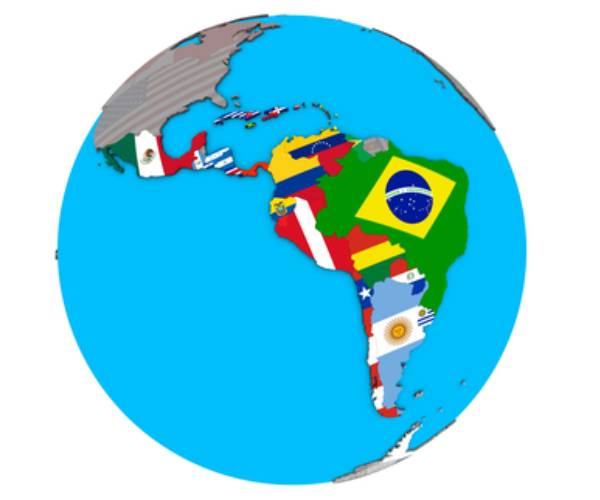
Thanks to COVID, China Poised to Expand Business Ownership in Latin America
This is the second of two parts.
Thanks to the COVID-19 pandemic, China is now poised to significantly expand its ownership of companies and assets across Latin America, just as they did following the economic crisis of 2008. China Communication and Construction Corporation (CCCC)'s acquisition of a 30% stake in the distressed Portuguese construction firm Mota-Engil, and State Grid's $3 billion purchase of the Chilean assets of the electricity firm Naturgy are the two most recent examples.
The PRC neo-mercantilist strategy to dominate global value added chains and strategic sectors is an integral part of its 2013 Belt and Road strategy, itself a modern resurrection of China's silk road, using infrastructure to facilitate trade to enrich the "middle kingdom." China's economic expansion creates a reinforcing cycle, with its economic presence and control of infrastructure bolstering its influence, helping Chinese companies to advance in other areas, while leading politicians and businessmen with a stake in commerce with China to mute their criticisms.
China's construction and control of infrastructure of all types supports its extraction of the region's commodities and access to its markets. This includes operation of an increasing number of ports, including CK Hutchisonn operations in Panama, the Bahamas, Argentina and Mexico, plus new initiatives such as the China Landbridge port in Colon, Panama, COSCO's construction of the Chancay port in Peru, and in Brazil, Chinese port operations in the Paranagua peninsula, São Francisco do Sul, and possibly a new megaport in São Luis.
The previously-noted CCCC stake in Mota-Engil will potentially help other CCCC companies like China Harbour win infrastructure projects through Public Private Partnerships (as it has won work to build and operate toll roads and the Bogota metro in Colombia, Jamaica's North-South toll road, and various other projects).
China's gambit also includes the bid by CCCC company Shanghai Dredging to replace the Belgian firm Jan de Nul in improving and operating the Paraguay-Parana river corridor as a toll route, giving it leverage over the agricultural exports of five Latin American countries (Bolivia, Paraguay, Argentina, Brazil, and Uruguay), and setting it up to privilege Chinese shipping companies and agro-logistics firms including Nidera and Noble (owned by the Chinese conglomerate COFCO). CCCC subsidiary China Harbour is also constructing another toll river route through the Peruvian Amazon.
China's bid to dominate Latin America's infrastructure goes beyond transportation. PRC-based telecom companies Huawei and ZTE have made impressive inroads as providers of both equipment and infrastructure (not just 5G) to both the region's governments and major commercial providers such as Telefonica, Claro and Movistar, among others, positioning it to set standards and steer business to Chinese companies using those networks. In electricity generation, the previously-noted acquisition of Naturgy by State Grid gives the PRC a significant position in electricity generation and transmission in Chile, reinforcing Yangtze Power's acquisition of Luz del Sur in Peru, and tens of billions of dollars in acquisitions by State Grid, China Three Gorges, and SPIC in Brazil's electricity generation and transmission sector in recent years.
In banking, Chinese institutions such as ICBC, and China Construction Bank, and non-traditional institutions such as Fosun International, are becoming an increasingly important part of the region's financial infrastructure.
The opportunities presented to the PRC through the COVID-19 pandemic accelerate a process in which its companies are progressively capturing control of the economic lifeblood of Latin American economies, from the ports and rivers through which it moves its goods, the electrical infrastructure that powers its economies, to the telecommunications and banking infrastructure through which it does its business and exchanges its most sensitive information.
China's bid to dominate Latin America's infrastructure in virtually every dimension is a strategy that should be familiar to those who criticized Microsoft for using its control of the Windows Operating System to promote its applications, or Google's use of its browser to dominate the web.
For Latin America, as in other moments of its history, complicity on both the right and left favors China's advance. Leftist populists indebt and deliver their countries to the PRC in corrupt, non-transparent deals that enrich their friends, in the name of "liberating" themselves from the West.
On the right, business elites open the door to Chinese firms, sell their local knowledge and access, in the hope of becoming rich. On all sides, Latin America loses. Simon Bolivar, the region's iconic "liberator" would be horrified ... but he would understand the pattern all too well.
“Thanks to COVID, China Poised to Expand Business Ownership in Latin America,” Part 2 of 2, Newsmax, December 8, 2020, https://www.newsmax.com/evanellis/latin-america/2020/12/08/id/1000521/.



